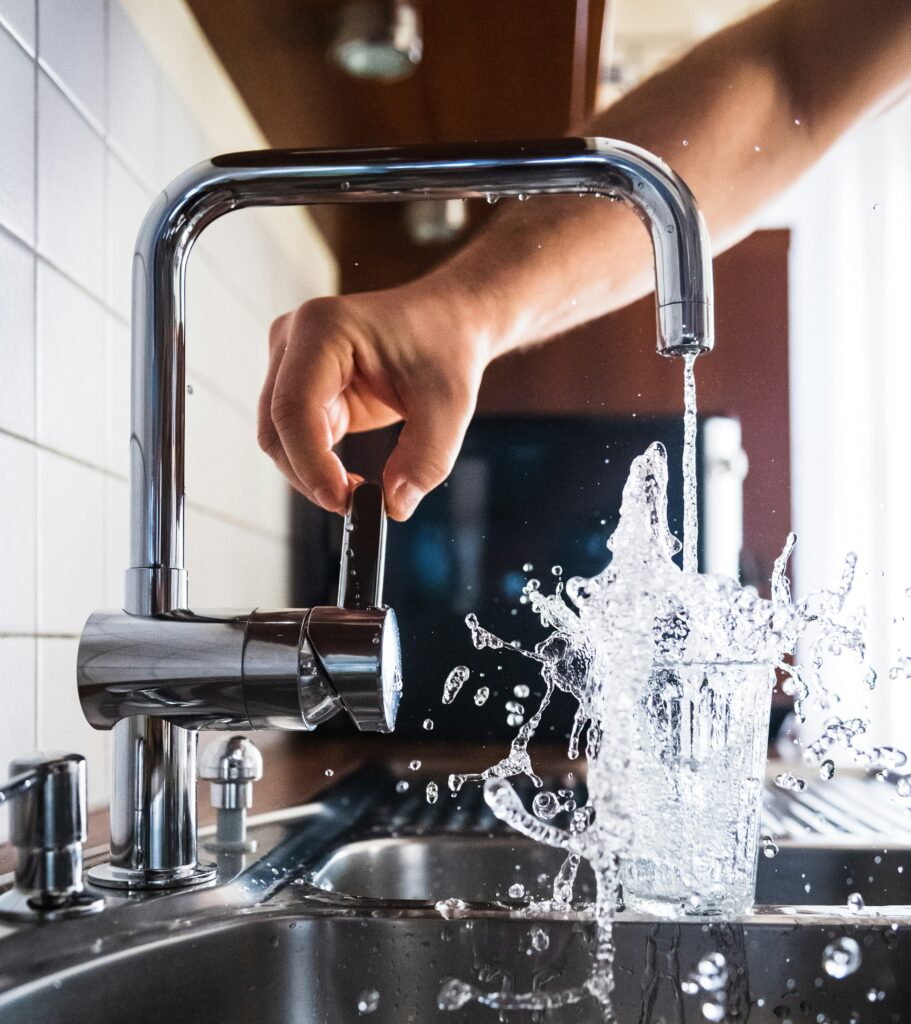Water fluoridation has been a longstanding practice for most states since the 1960’s. The state of Utah, however, has imposed a controversial ban of fluoride in its public drinking water. Despite criticism by many health organizations, HB81, the banning of fluoride in Utah water, is set to take place May 7, 2025.
What Is Fluoride And Is It Good For Your Teeth?
Fluoride is a naturally occurring mineral found in many foods and water. It is most well-known for its role in dental health.
The ban of fluoride in Utah water may be puzzling considering fluoride has been proven to improve oral health. In dentistry, healthcare providers use fluoride to:
- Reduce your risk of cavities by approximately 25%
- Reverse early tooth decay
- Slow down the process of demineralization
- Prevent the growth of cavity-causing bacteria
- Remineralize your tooth enamel

When Did Dentists Start Using Fluoride?
In the early 1900’s, dentists in Colorado noticed that many residents had brown-stained teeth but surprisingly few cavities. One dentist in particular, Dr. Frederick McKay, investigated and found that the discoloration was linked to the local water supply naturally high in fluoride. Researchers were able to confirm three decades later that fluoride in drinking water reduced tooth decay.
Grand Rapids, Michigan became the first city in the world to add fluoride to its municipal water supply in 1945 which resulted in 60% fewer cavities for kids than those in nearby non-fluoridated cities. Following the success in Grand Rapids, fluoridation spread across the U.S., Canada, and later to other countries.
As of 2025, over 70% of the U.S. population receives fluoridated water. Many other countries, however, fluoridate salt or milk instead.
How Does Fluoride Affect Your Health?
Fluoride plays a powerful role in protecting teeth, but like many things, balance is key. While it strengthens enamel and helps prevent cavities, consuming too much—especially in young children—can lead to dental fluorosis, a condition that causes faint white spots on developing teeth. That’s why we’re advised not to swallow toothpaste and to use only a small amount based on age: a rice-sized smear for kids under 3, and a pea-sized amount for kids ages 3 to 6.
Experts at the Institute of Medicine have set age-specific guidelines to show how much fluoride is safe to consume each day. 0.7 mg/day for infants up to 6 months, 0.9 mg for 7–12 months, 1.3 mg for ages 1–3, 2.2 mg for ages 4–8, and 10 mg per day for everyone 9 and older. These limits include all sources—drinking water, toothpaste, food, and any supplements. Used wisely, fluoride is a safe and effective tool to support lifelong oral health without risking overexposure.
Why Did Utah Remove Fluoride From Their Water?
Utah is the first state to ban fluoride in its water. The bill to remove it from public drinking water was introduced by Utah’s Governor, Spencer Cox, in early March. Several lawmakers argued however that Utahns can still choose to get fluoride supplements for dental care and that residents should be given a choice when it comes to the mineral.
While respecting individual choice is important, the decision to remove the fluoride in Utah water is ‘heartbreaking’ and expected to lead to ‘increased dental disease, especially among young patients who had no say in the matter,’ warns Richard Fisher, DMD, president of the Utah Dental Association.
How The Fluoride Ban In Utah Could Impact Families
Many health professionals are concerned the choice to ban fluoride in Utah water will create a greater need for dental services. This is especially concerning in areas which are already suffering from shortages of dental health professionals or for patients without adequate dental insurance. Community water fluoridation saves an average of $32 per person on dental expenses annually, according to the Centers for Disease Control and Prevention, meaning removing fluoride from the water could potentially cost Utahns around $48 million a year.
How To Take Care Of Your Teeth Without Fluoridated Water
If you find yourself concerned about the removal of fluoride in Utah water, we recommend during your next dental visit to request they apply fluoride to your teeth in the form of:
- Varnish, which they’ll paint directly on your teeth
- Gel, which they’ll either paint on your teeth or dispense in a custom tray
- Foam, which they’ll dispense into a custom tray, then place over your teeth
What the Dental Community Thinks About the Fluoride Ban
The addition of low levels of fluoride to drinking water has long been considered one of the greatest public health achievements of the past century. Despite its proven benefits, Utah has chosen to move in the opposite direction—sparking concern among health professionals nationwide.
The ban of fluoride in Utah water has drawn backlash from leaders in the dental community, who warn of long-term health consequences. The American Dental Association (ADA) criticized the decision, calling it a “wanton disregard for the oral health and well-being of their constituents.” Critics also argue that the ban disproportionately affects low-income families who rely on fluoridated water as an affordable form of preventive dental care.
Conclusion: No Fluoride in Utah Water
As we prepare to embrace the ban of fluoride in Utah water, families across the state may soon face new challenges in maintaining good oral health. While personal choice is important, the removal of a proven, cost-effective preventive measure could lead to increased dental issues—especially for children, seniors, and those without easy access to dental care.
Contact us today to learn more about fluoride in Utah water and your oral health.
